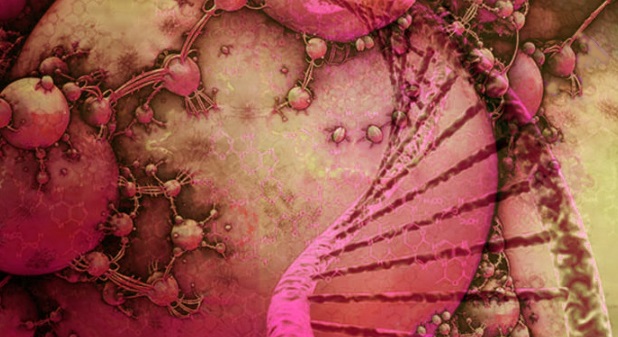Nikhil Prasad Fact checked by:Thailand Medical News Team Jul 07, 2025 7 months, 2 weeks, 2 days, 22 hours, 37 minutes ago
Medical News: Scientists Uncover Dangerous Link Between Ancient Human Viruses and Modern Infections
Researchers from the Clinical Medical Laboratory Center at The Affiliated Taizhou People’s Hospital of Nanjing Medical University and the Taizhou School of Clinical Medicine, Nanjing Medical University, have found that ancient viruses buried in human DNA—known as human endogenous retroviruses (HERVs)—may play a far greater role in modern diseases than previously believed. Their groundbreaking review highlights how these dormant viral genes can be reawakened by modern infections like HIV, COVID-19, and even herpes viruses, potentially worsening disease outcomes.
 Hidden Retroviruses in Human DNA Worsen Viral Illnesses Like COVID-19
Hidden Retroviruses in Human DNA Worsen Viral Illnesses Like COVID-19
In this
Medical News report, the team emphasized how HERVs, which make up nearly 8% of the human genome, are usually silent but can be reactivated by external viruses. Once reactivated, HERVs may either support the invading virus or trigger autoimmune or inflammatory responses, leading to serious health consequences. The scientists believe that these hidden viral elements could serve as early warning signals for disease severity or even become future treatment targets.
HIV and HERVs Working Together or Against Each Other
HIV infection has been shown to activate certain HERVs, especially a family called HERV-K. Once activated, these genes can increase in number and produce viral proteins. Some of these proteins may actually help HIV multiply, while others may interfere with the virus, possibly offering a path to new treatments or vaccines. Notably, researchers found that individuals who naturally control HIV without medication have stronger immune responses against HERVs—raising hope for vaccine development based on these ancient viral proteins.
HERVs in Multiple Sclerosis and COVID-19
In diseases like multiple sclerosis (MS), the review points out that HERV-W proteins triggered by viruses like Epstein-Barr Virus (EBV) and human herpesvirus 6 (HHV6) may damage brain cells and block the body’s ability to repair nerve coverings. The drug Temelimab, targeting HERV-W, has already shown promise in reducing brain damage in MS patients.
In COVID-19, HERV-W and HERV-K were also found to be highly active, especially in severe cases. Some studies suggest their presence in the blood may predict how bad a COVID-19 infection could get. Intriguingly, these retroviral proteins have also been proposed as parts of experimental vaccines.
A New Direction in Disease Prediction and Treatment
The authors suggest that monitoring HERV activity could become a standard tool for predicting who might suffer more severe symptoms from viral infections. They also propose that blocking these ancient viruses—or even using their proteins as vaccine targets—could change how we treat diseases ranging from HIV and COVID-19 to autoimmune and neurological conditions.
While these ideas are still in early stages,
the review strongly argues that HERVs are not just leftover genetic fossils but active players in human health. This discovery opens the door to a new kind of medicine that could harness—or silence—these hidden viruses to fight disease more effectively.
The study findings were published in the peer reviewed journal: Virulence
https://www.tandfonline.com/doi/full/10.1080/21505594.2025.2523888
For the latest on HERVs, keep on logging to Thailand
Medical News.
Read Also:
https://www.thailandmedical.news/news/breaking-sars-cov-2-infection-induces-human-endogenous-retrovirus-type-w-envelope-protein-expression-in-blood-lymphocytes-and-tissues
https://www.thailandmedical.news/news/breaking-covid-19-news-study-discovers-that-sars-cov-2-modulates-human-endogenous-retrovirus-herv-transcriptome-during-infection
https://www.thailandmedical.news/news/breaking-covid-19-news-study-discovers-that-sars-cov-2-modulates-human-endogenous-retrovirus-herv-transcriptome-during-infection
https://www.thailandmedical.news/news/study-finds-that-sars-cov-2-activates-ancient-retroviral-genes-and-inflammatory-herv-w-envelope-protein-in-covid-19-patients
